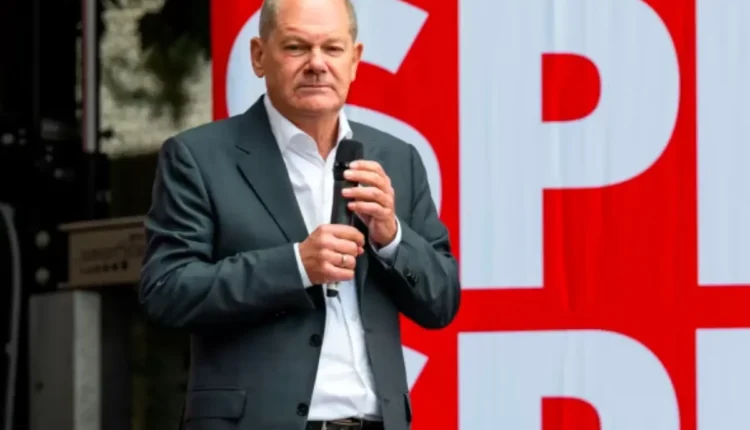Poland : Cash-for-Visas Scandal Controversy deepens
Poland : Calls for Investigation and Border Control Discussions
Poland : German Chancellor Olaf Scholz has taken a bold step into the midst of Poland’s ongoing cash-for-visas scandal, demanding a thorough investigation into allegations of corruption and negligence by Warsaw authorities. This move comes as Germany faces a mounting challenge of irregular immigration, with Scholz attributing the rising numbers partly to Poland’s actions.
Speaking passionately at an election rally in the southern city of Nuremberg on Saturday, Scholz accused the Polish government of “waving through” refugees, allowing them to pass into Germany without processing their asylum applications within Poland. This accusation has sparked a contentious debate between Germany and Poland regarding their respective responsibilities in managing migration flows.
The scandal centers around allegations that Poland’s ruling Law and Justice party (PiS) tolerated a corruption scheme that illicitly sold Polish visas at consulates worldwide. This revelation has cast a shadow over Poland’s image, given their strong stance on anti-immigration measures domestically.
Poland & Government
While the Polish government has acknowledged that hundreds of visas were sold illegally, they contest the opposition’s claims of a larger-scale operation. So far, seven individuals have been charged with corruption in connection with this scheme, with three in detention.
Germany’s concern over the influx of migrants is evident in its rising asylum application numbers, which have surged by 77 percent up to August this year, totaling over 204,000 applications.
Additionally, Germany has provided refuge for 1.1 million Ukrainian refugees since Russia’s invasion 19 months ago. These figures have placed significant pressure on Scholz’s coalition government to address the issue of irregular immigration effectively.
However, the dilemma for Germany lies in balancing its commitment to asylum rights, enshrined in its postwar constitution, with the need to control immigration. Chancellor Scholz has hinted at the possibility of “resorting to additional measures” on the German-Polish border, although specifics remain undisclosed.
Interior Minister Nancy Faeser has suggested that stationary border controls could be an “option” to combat human trafficking, but she cautioned against the misconception that such controls would completely halt asylum-seekers’ arrival.
This intervention by Chancellor Scholz follows earlier reports in Polish media, indicating that German local and regional authorities had already complained to the European Commission about a substantial inflow of individuals using Schengen visas issued by Poland. However, the European Commission has refrained from commenting on these complaints.
Anitta Hipper, the commission spokesperson for home affairs, described the visa fraud allegations as “very concerning.” Commissioner Ylva Johansson has written to the Polish authorities, seeking clarifications on the matter as of September 19.
Poland’s Foreign Minister, Zbigniew Rau, has countered the allegations, stating that there were only around 200 cases of potential fraud. He also contested the claim that Poland’s issuance of Schengen visas was an outlier within the EU, citing proportional figures of two visas per thousand inhabitants compared to France’s 20 and Germany’s 10.
Also Read : New Zealand : Government Uncovers Alarming Migrant Exploitation

